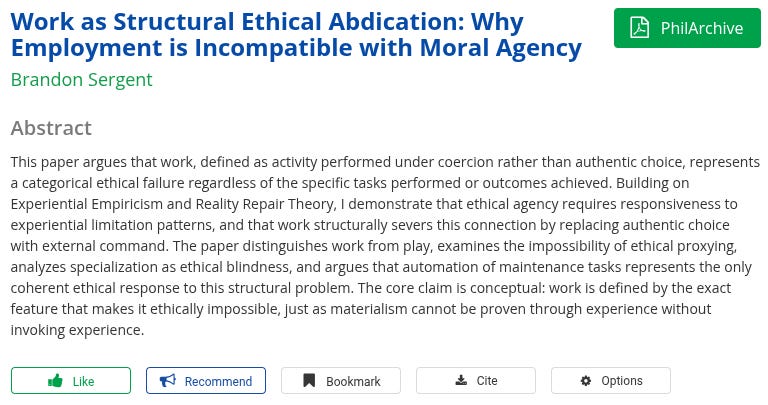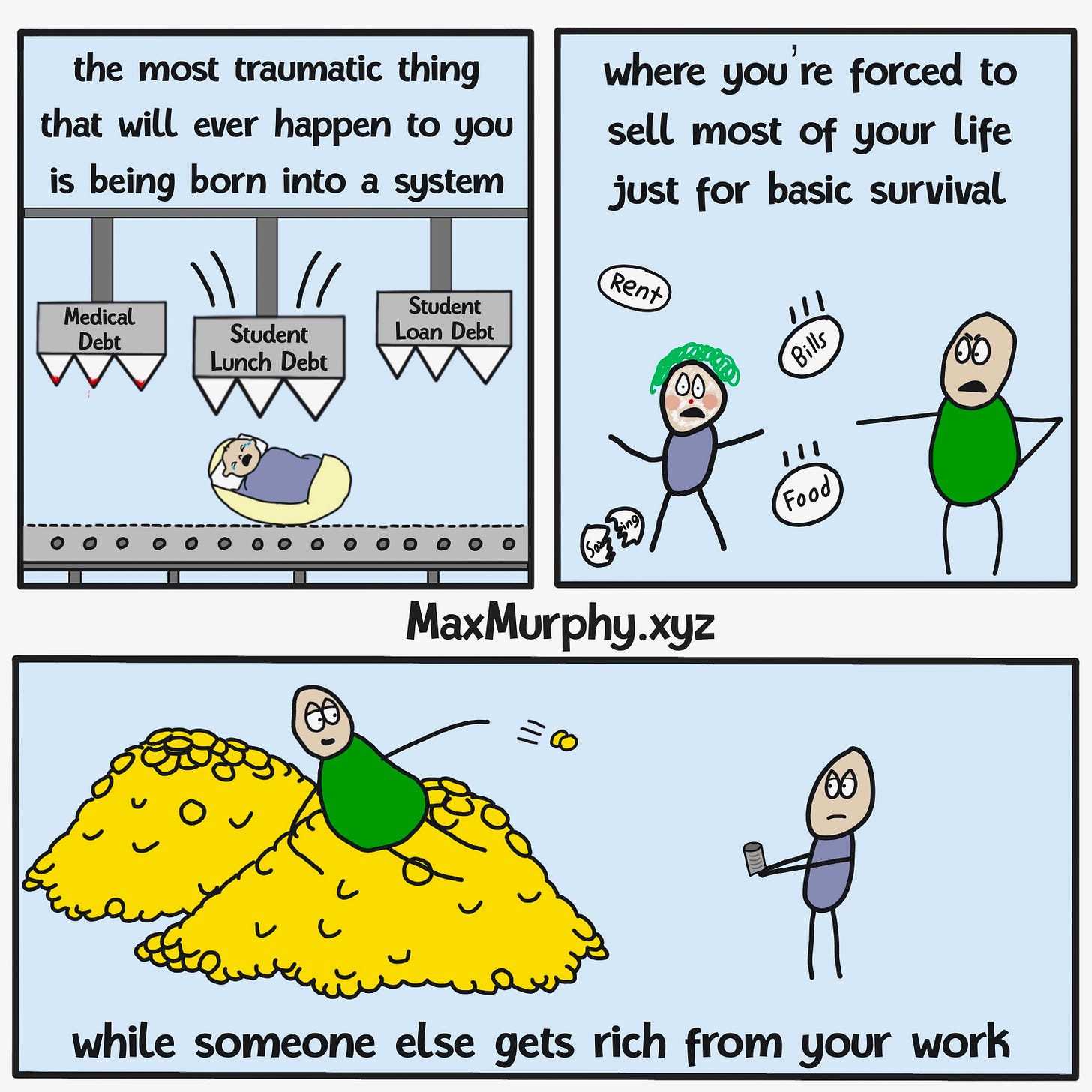Work is Literally Evil
By design, it limits liability, same as following orders.
Update, the scholarly version:
https://philpapers.org/rec/SERWAS-3
Basically a second attempt at this:
This post is crap. It's because it's too big a topic for me alone and that fact itself is depressing and relevant. It's also very hard to stay motivated when no one cares about the output. I literally don't know why I persist. But my days of 10 hours on a reply spent are over. (Yes, really, I was MOTIVATED back then. The idealism of youth.)
But anyway here is a second attempt at capturing the essential missing things link between hedonic foundational axioms and ALL our policy problems. How we went from farming to planet genocide bank. You can see why size becomes an issue. I've written a lot of comments on this and had a lot of side thoughts, and there's a strong desire to rehash the axiomatic foundation, but that itself was a whole, if easier, post. Basically this is book worthy. But that is also emotionally painful because it reminds me of old dreams, old myths. This is all so dejecting. Anyway, here's a brief outline chunk the AI helped me with. I’m not including the raw text I have archived on this unless someone specifically wants it. It’s unordered and recycled.
The Core Argument
Feeling is the Foundation of Ethics
The ability to feel — to experience pleasure and pain — is what makes living beings ethically relevant. A stone can’t feel; a mouse can. It is not possible to abuse or betray a stone because it cannot feel. This capacity to feel is what allows for moral consideration.
If I know I can feel, I can reasonably assume other living beings can feel too.
This shared capacity for sensation is the basis for ethical thinking. It’s what makes matter, matter.
Work is a Form of Ethical Compromise
Work, as we understand it, is fundamentally about doing something you wouldn’t freely choose. The tasks that define “work” are, by definition, things that would not be done out of joy or self-fulfillment.
Work removes us from our ethical core — it forces us to prioritize the needs or commands of an external entity (an employer, a market, a system) over our own moral intuitions.
Even self-employment often serves distant forces: the need for money, survival, or systems of belief we didn’t create.
Work Disconnects Us from What Matters
Because work is about fulfilling external demands, it blurs the line between what we would freely do and what we are compelled to do.
Specialization makes this worse by disconnecting us from the ethical consequences of our actions. We become cogs in a machine, unable to fully see or judge the whole picture.
Automation is the Ethical Response
The ethical goal should be to reduce or eliminate work. No one should be forced to do something that blunts their moral agency or diminishes their ability to experience joy.
Unfeeling automation should replace tasks that no one would choose to do. Intelligence should be used to reduce future constraints on freedom, not perpetuate work.
Work is constraint. Perpetuating it is irrational. The goal is to free us from work, to free us from the need to suppress our ethical and emotional responses.
Work Should Not Be Glorified
We should recognize that all work is ethically compromised. It’s a temporary, dire necessity, not something to be glorified. Our progress as a species should be directed toward eliminating it, not sustaining it.
If we can feel, and we can know others can feel, that is the foundation of ethical understanding.
By its nature, work disconnects us from this ethical ground and forces us to prioritize external demands. The goal should be to eliminate this disconnection through automation and the reduction of forced labor.
The End
Here’s a comic by bob moran that I think sums up how employment dilutes ethics.
See also/Citation:
Adam’s post here is a solid collection of examples of how ethics will get you fired.
See also:
https://theanarchistlibrary.org/library/bob-black-the-abolition-of-work/
He doesn’t explain the mechanism of how work==evil as I have, but he clearly sees the evil of it.






People used to have a business with their family. Those were the best times.
Now they have atomized us completely
Evil all around us
I care.
It's getting harder to, but... I still care.
Please keep punching.